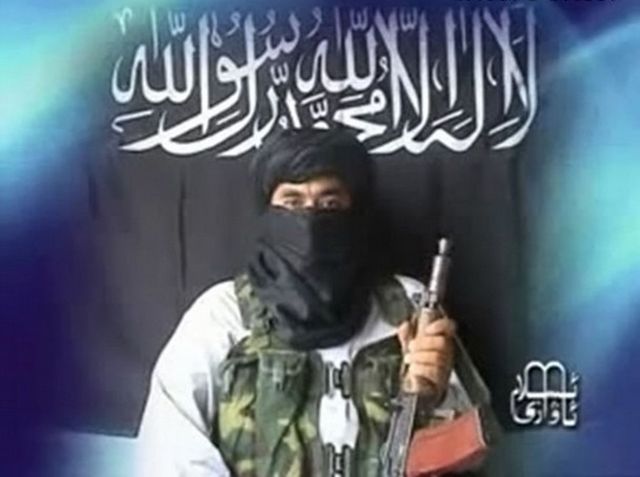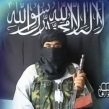
Jihad in China? Marketing the Turkistan Islamic Party
Publication: Terrorism Monitor Volume: 9 Issue: 11
By:

Since its creation in 2008, the Uyghur-based Turkistan Islamic Party (TIP) has vowed to carry out jihad against the Chinese occupiers of Xinjiang, the massive western province of China that is known to its Muslim inhabitants as East Turkistan. While evidence of actual operations in China is slight and the movement appears to remain confined to its training camps in tribal Pakistan, the TIP has tried to reach out to the larger Islamic world through a sophisticated and glossy internet magazine, Islamic Turkistan.
All eight editions of Islamic Turkistan have been written exclusively in the Arabic language. Thus, the intended readership is not the Muslims of Turkistan. The majority of Muslims in Xinjiang Province are Uyghurs who speak a Turkic language unrelated to Arabic, but there are also significant numbers of other Muslim Turkic peoples in Xinjiang, such as Kazakhs, Uzbeks, and Kyrgyz, few of whom read or speak Arabic aside from the Islamic clergy and scholars. The only non-Arabic text in the entire publication is in the TIP’s logo, where the Arabic, Uyghur, and English names of the movement are inscribed around two swords and a Koran.
The content of the magazine is not intended for Muslims in China either. For example, the sixth, seventh and eighth editions of Islamic Turkistan feature articles titled, “Get to Know the Muslims in China.” The installment in the sixth edition introduces the Dungan minority group (commonly known as “Hui” in Mandarin and English) and reviews the history of the Dungan Muslims in China, from the first delegation of Arabs who brought Islam to the “Sultanate of Dunganstan” in 651 C.E. to the present. The magazine addresses the important question of why China’s large Hui community has shied from joining the jihad. The author blames several “historical” factors for why “we don’t see any groups or individuals from the Dungan in jihad.” These factors include:
• Using the same language as the “infidel Chinese.”
• Calling the land of China home.
• The absence of Islamic movements calling for Dungan/Hui independence.
• The ability of China to manipulate the Muslim Uyghurs and the Dungan/Hui
into being enemies for over three centuries.
• The influence of the Muslim Brotherhood on the Dungan/Hui in the 1950s and 1960s which caused them not to participate in jihad activities.
What Happened to Abd al-Haq al-Turkistani?
Notably, the most recent issues of Islamic Turkistan do not discuss the death of Abd al-Haq al-Turkistani, the TIP leader killed by a U.S. drone strike in North Waziristan in February 2010 (see Terrorism Monitor, March 11, 2010). Although these editions include articles dated after his death and the seventh edition even features a speech by al-Turkistani, the editors have deliberately chosen not to include a story about his death in the section “Our Martyrs” or anywhere else in the magazine.
Since its inaugural issue in July 2008, al-Turkistani was featured prominently in Islamic Turkistan. Abdullah Mansour wrote an article in the first issue, stating that al-Turkistani became the military commander of the TIP after former leader Hamad Mahsum was killed by Pakistani forces in 2003. In the same issue, al-Turkistani wrote the concluding article, “Save Turkistan before It’s Too Late,” warning of the threat to Islam in Xinjiang and chastising Muslims elsewhere for turning a blind eye to the region’s Muslims. [1] The second, third and fourth editions of Islamic Turkistan contained a three article-series on al-Turkistani’s life. The third article in the series, “Interview with Brother Abd al-Haq, Emir of the Turkistani Islamic Party,” details al-Turkistani’s life in Kabul in 2001 and his retreat into Waziristan after 9/11 and the fall of the Taliban. It is unclear why the sixth and seventh editions do not say who succeeded al-Turkistani as TIP’s new leader or provide information on his death, but the TIP’s inability to carry out attacks against China or U.S. forces in the Afghanistan-Pakistan region to avenge him may provide the reason for the silence on this major setback to the group.
The TIP and the Islamic World
The language and content of Islamic Turkistan show that the main purpose of the publication is to introduce TIP ideology to the Arabic-speaking global jihadist community and, possibly, to attract funding from the sympathizers in the ummah, al-Qaeda, or the Taliban. The publication is less about presenting the group’s militant achievements and qualifications than other jihadist publications, presumably because there is no evidence that TIP has ever carried out a successful attack in China, despite TIP claims in videos released in 2008 that it had coordinated three bus bombings before the 2008 Beijing Olympics. China often blames demonstrations and violence in Xinjiang on Muslim and Uyghur “splittists” and “terrorists,” but China has not offered credible evidence to justify its claims.
Paradoxically, claims of terrorism by the TIP and the Chinese government – whether true or not – can benefit both parties. The war against terrorism allows the Chinese government to justify its heavy-handed policies to suppress Uyghur activism in Xinjiang while crediting the TIP for violence it was not responsible for enhances the TIP’s jihadi resume.
A selection of articles from Islamic Turkistan’s seventh issue gives some idea of the publication’s mix of religious inspiration, jihadi ideology and ethnic nationalism:
• The editorial is called “The Heart of the Thief is Trembling” and talks about China’s plans to build 30 airports in East Turkistan, claiming the expansion in air facilities is due to China’s internal and external security concerns rather than to further the prosperity of the region: “The thieves of the land are afraid of their safety, therefore they plan to protect themselves.” The writer predicts that China will replace America as the global superpower after America collapses, but warns the “Chinese aggressors” that the TIP will continue to wage jihad against China for the sake of the people in the region.
• “Turkistan Seeks Help…Is There a Supporter?” is based on a lecture given in Afghanistan by Shaykh Abu Mohammed al-Turkistani (Abdul Haq al-Turkistani), who reminds listeners of the importance of being prepared for fighting both spiritually and externally. Al-Haq gives an introduction to Turkistan’s geography and its wealth and resources. He says (incorrectly) that Turkistan is the second biggest oil-producing region in the world. The final paragraph is about the war against Muslims in Turkistan to end the region’s Islamic identity and annihilate the mujahideen. This is what he says gave rise to the emergence of the Turkistani Islamic Party in May 1988.
• "Get to know Muslims in China" focuses on the religious, ethnic and historical ties between the Muslims of East Turkistan and Kazakhs. It highlights the failure of the Chinese rule to sow discord between Uyghurs and Kazakhs despite the oppression of Muslims in Central Asia.
• "The Commandment of the Martyr Abdullah Azzam," is a reminder to all that jihad is a duty for every Muslim. "Your life is jihad…Your pride is in al-jihad…Your existence is closely linked to Jihad." The Jordanian-Palestinian jihad ideologue and spiritual founder of al-Qaeda Abdullah Azzam recommended that Muslim scholars, women and children focus on the religious duty of Jihad.
Profiling Martyrs
A regular feature in Islamic Turkistan is “Our Martyrs,” which profiles TIP fighters killed in action. The most recent issue profiles the martyr Abdul Salaam. According to the article, Abdul Salaam’s original name was Roz Mohammed and he was born in 1985 in the city of Lop in the state of Xotan, Xinjiang Province. He grew up with a loving, Muslim family who wanted him to become a scholar. After primary school his family took him to Pakistan on their way to the Hajj. He entered a school in Lahore where he trained in reciting the Koran, but did not finish his education after hearing the call of jihad in Afghanistan in 1999 from Abu Mohamed, leader of the TIP. Abdul Salaam then went to Kabul to study at the School of Hijra and Jihad, which was for Turkistanis. There he obtained training in weapons that were prohibited in China.
By 2001, Abdul Salaam was at a camp in Tora Bora with Arabs and fellow Turkistanis. His camp was hit by U.S. airstrikes on October 7, 2001. Some of his “brothers” were killed in that battle but he still participated in the fight against the Americans and their local allies. When the mujahideen withdrew over the border into Pakistan they were captured because a Shi’a tribe in Bujnar, Pakistan betrayed them. According to the account, the government of Pakistan sold the prisoners to the Americans, though Abdul Salaam was placed in a Pakistani prison because of his young age until he was released with the help of tribal leaders. The young jihadi then joined the TIP in Khorasan [i.e. the tribal regions of northwest Pakistan] and trained with the mujahideen there, remaining with them even when many fighters abandoned the jihad after the fall of the Taliban’s Emirate of Afghanistan.
Abdul Leith (presumably Abu Laith al-Libi, d. 2008, is intended here) asked TIP leader Abdul Haq if Abdul Salaam could join him. The two then became like father and son and Abdul Leith said, “Among a couple of the trainees Abdul Salaam was young, fast in his movements, and keen in his training.” Abdul Salaam joined Abdul Leith in many battles before he considered fighting against the Communists in Turkistan. He was well trained in the use of man-portable surface-to-air missiles and in 2007 invented a modification to improve their performance. However, the second time the modified weapon was used it exploded, killing the shooter and fatally wounding Abdul Salaam, who was videotaping the launch. His wife was pregnant when he died and delivered his son two months later. The profile concluded by noting Abdul Salaam is regarded as an example for all Muslims
Conclusion
As a 50-plus page magazine written in Arabic with detailed color graphics and a diverse array of historical, religious, and current events articles, Islamic Turkistan is as sophisticated as other leading jihadi publications, such as al-Qaeda in the Arabian Peninsula’s English language jihadi journal, Inspire. In some ways, the two publications are similar. They both feature martyrdom biographies, interviews with prominent jihadis, and religious justification for their jihad.
However, there are also important differences. Whereas Inspire is written in English for an international audience and with the intent of attracting recruits from the West, Islamic Turkistan is aimed neither at the West nor the Uyghur and other Turkic-language speaking Muslims it purportedly represents in Turkistan. The magazine tries to position the struggle in Xinjiang and Central Asia as part of the global jihad movement on a par with Palestine, Iraq, and Afghanistan. Unlike Inspire, which provides specific details on bomb-making, Islamic Turkistan focuses on familiarizing the readership with the struggles of Xinjiang’s Muslims and the reasons for TIP’s jihad against Communist China, but the publication does not provide lessons on how to carry out militant operations. As there have been no confirmed attacks in China attributed to or inspired by the TIP, the publication cannot be considered effective on an operational level.
With eight issues released between July 2008 and March 2011, the effort to produce Islamic Turkistan is evidently worth the time, even though the TIP has not gained traction in Xinjiang and Central Asia or become a strategic concern for the Chinese government. For now, the only benefit achieved through publication may be that it puts the TIP on the radar of funders who support insurgency movements in northwest Pakistan and builds the TIP’s reputation as a legitimate international jihad movement.
Note:
1. Kirk Sowell, “Promoting Jihad Against China: The Turkistani Islamic Party in Arabic Jihadist Media,” An Independent Report Commissioned by Sky News. August 1, 2010.





